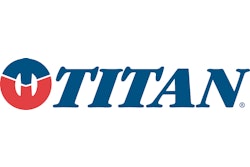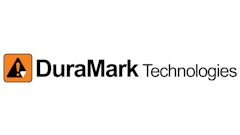Energy ministries from Canada, Mexico and the United States have announced that nine companies will join the North American Energy Management Pilot Program to promote implementation of the ISO 50001 international energy management system standard. 3M, ArcelorMittal, BMW, Cargill, Cummins, Ingersoll Rand, Intertape Polymer Group, New Gold, and Titan America will receive training and technical assistance to achieve ISO 50001 and Superior Energy Performance (SEP) certification. Their participating facilities consume the equivalent energy of over 1.2 million typical U.S. households annually. The energy and cost savings to these companies and the economy are significant, as the standard helps increase a company's return on investment while enhancing sustainability. The program will help these companies save money while reducing their energy consumption and greenhouse gas emissions.
An energy management system (EnMS) integrates energy management into existing business systems, enabling organizations to better manage their energy, sustain achieved savings, and continuously improve energy performance. The ISO 50001 energy management standard provides organizations with an internationally recognized framework for implementing an EnMS. Industrial facilities, commercial facilities, or entire organizations can use ISO 50001 to manage energy—including all aspects of energy procurement and use—and reduce costs and carbon emissions. Superior Energy Performance certifies industrial and commercial facilities that implement an ISO 50001 compliant EnMS and achieve verified improved energy performance.
The North American Energy Management Pilot Program was developed in partnership with Mexico's Ministry of Energy and National Commission for the Efficient Use of Energy, Natural Resources Canada, the U.S. Department of Energy, and the Commission on Environmental Cooperation. It supports global efforts through the Clean Energy Ministerial and the International Partnership for Energy Efficiency Cooperation to accelerate the adoption of ISO 50001 to improve business competitiveness, lower energy costs and protect the environment.
"The North American ISO 50001 Pilot Program builds upon a solid foundation of cooperation between the U.S., Mexico and Canada to promote adoption of the standard regionally," says Kathleen Hogan, Deputy Assistant Secretary for Energy Efficiency at the U.S. Department of Energy. "This effort will facilitate the region's transition to a clean energy economy through cooperation and public and private partnerships, such as in the steel, cement, automotive, chemical and food processing industries."
Since the publication of the ISO 50001 standard in 2011, over 15,000 facilities worldwide have been certified and are realizing average energy-performance improvements of 10% or more, and are achieving net cost savings, often through low-cost or no-cost changes to operations. A 2015 study of 10 facilities certified to ISO 50001 and SEP found significant savings, including annual savings of $36,000 to $938,000 using no-cost or low-cost operational measures. This study and case studies on the experiences and benefits realized by individual SEP-certified facilities can be found on the SEP website.

















